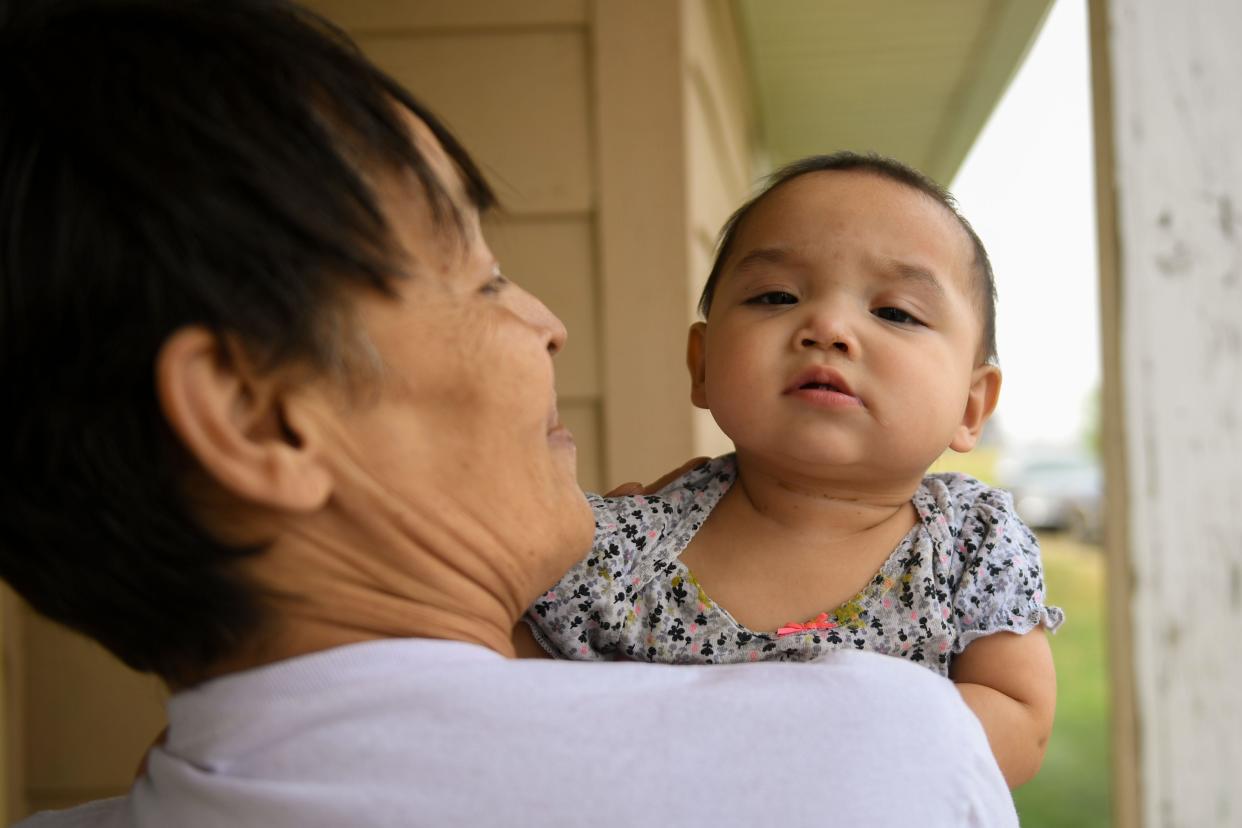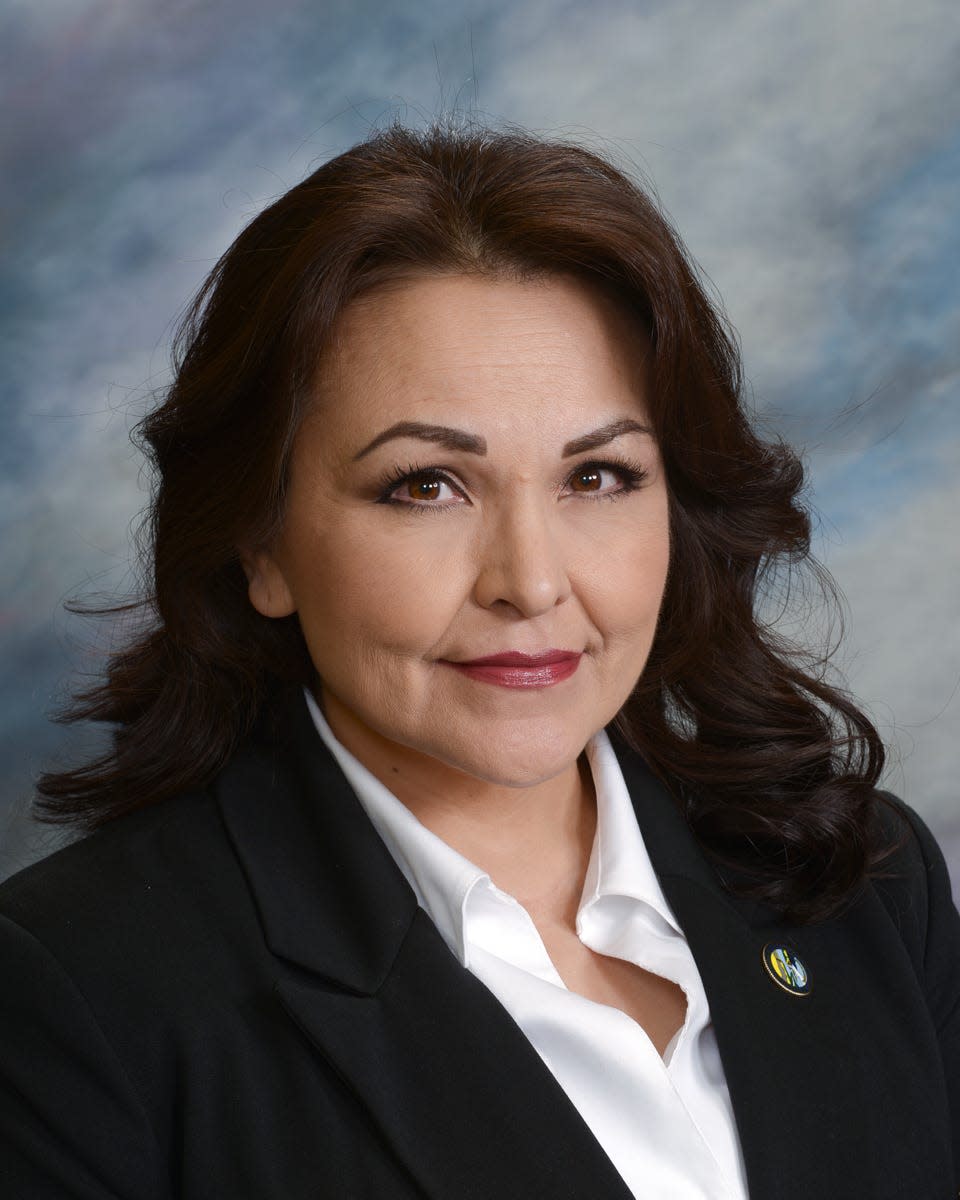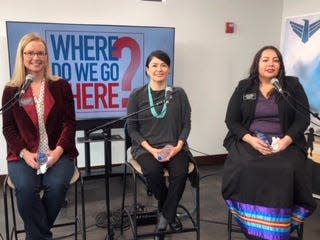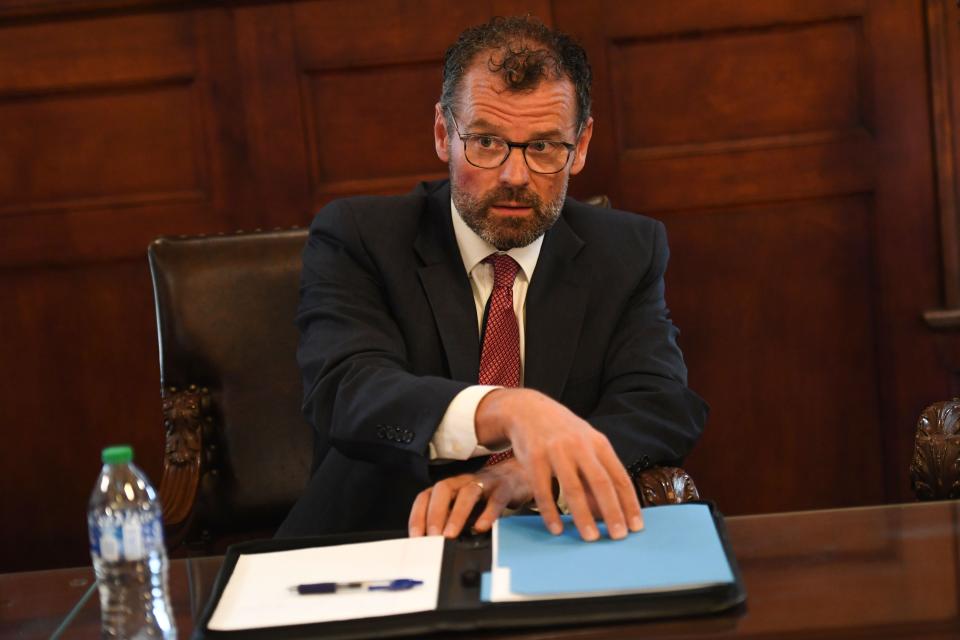Native American child welfare bills return to legislature after federal ICWA upheld

- Oops!Something went wrong.Please try again later.
Three bills were introduced last year at the South Dakota Legislature to address Native American child welfare reform. All of them were defeated, with opponents citing concerns about the U.S. Supreme Court’s impending case addressing the Indian Child Welfare Act, known by the acronym ICWA.
The court has since upheld the constitutionality of the federal law, and another batch of bills has been introduced during the 2024 legislative session.
“I have to bring this back,” said Rep. Peri Pourier, D-Rapid City, who sponsored the bills last year, has two new bills this session and is a member of the Oglala Sioux Tribe. “We all have to believe that we can come together on something.”
More: The Lost Children: An Argus Leader/South Dakota Searchlight investigation into ICWA in SD
A six-month joint investigation by South Dakota Searchlight and the Argus Leader following last year’s session explored the causes, effects and potential solutions to the decades-long overrepresentation of Native American children in South Dakota’s foster care system. Native American children accounted for nearly 74% of the foster care system in June 2023 — despite accounting for only 13% of the state’s overall child population.
ICWA, which became law 45 years ago, was intended to address those kinds of statistics with laws to keep more Native American children with their families, relatives and in their communities. With ICWA’s legal status solidified, Pourier is hopeful new state legislation will pass. Flandreau Santee-Sioux Tribe Vice President Cynthia Allen-Weddell urged lawmakers to consider such legislation during the annual State of the Tribes address to legislators in January.
Pourier’s bills would create a two-year task force to study Native American child welfare as well as codify and expand a piece of ICWA in state law.
Republican Rep. Tamara St. John, from Sisseton and a member of the Sisseton Wahpeton Oyate, is the prime sponsor of a bill that would establish an Indian Child Welfare Advisory Council in the state Department of Social Services.
Goal of task force, advisory council is to open space for communication, ‘building bridges’
Both St. John and Pourier have struggled to obtain data from DSS to inform their legislation. St. John said she’s also found a disconnect between what the department, tribal leaders, ICWA officials and nonprofit organizations are doing. Her bill would “support the work already being done” separately by those organizations.

“Everyone that is working in these areas are doing their utmost for South Dakota kids and Native kids, but there just isn’t a real connection,” St. John said. “There isn’t a space for those types of conversations between organizations or to initiate innovative ideas and recommendations.”
An advisory council would provide that space for “communication, consultation and a path forward” for stakeholders, St. John said.
Lawmakers approved legislation in the early 2000s to establish a task force to study implementation of ICWA in South Dakota. One of the task force recommendations that was implemented was the creation of the South Dakota ICWA Coalition.
More: DSS will not ask for funding related to enhancing kinship care in South Dakota
But that organization is primarily focused on connecting tribal ICWA officials across the state and is more informal than what St. John would like to see – not recording minutes from meetings or reporting findings to a state agency. An advisory council would build upon that coalition to invite officials from all of South Dakota’s tribal nations into regular conversations directly with the state.
The advisory council would meet four times a year and would reside under DSS. The department handles the state child welfare system, and it’s where the statewide ICWA coordinator operates.
Pourier’s task force would have representatives from South Dakota’s tribal nations, DSS, the state Department of Corrections as well as lawyers, state court staff, legislators and others meet for two years to improve South Dakota’s child welfare system, especially related to Native American children and families involved in the system. The task force would issue a report and legislative recommendations by the end of 2026.

“It’s about building bridges,” Pourier said. “It’s about becoming informed decision makers and looking at different perspectives and all sides of an issue. … We have to come together to find common ground and try to find a solution. That’s what the task force is about.”
Defining ‘active efforts’ for reunification
Pourier’s second bill would define the “active efforts” intended to keep Native American foster children with their families, relatives or in their community that ICWA requires child welfare officials to undertake. The bill outlines 11 ways to reach the standard, and would extend that standard to all children in South Dakota’s child welfare system. The Department of Social Services follows a “reasonable efforts” guideline for non-Native American foster children.
“It’s not really clear what active efforts look like, plus, do you want kids to be on different standards when you’re talking about due process?” Pourier said. “We need to make sure that we have due process and we have a measurement tool.”
The House Judiciary Committee will hear arguments on Pourier’s active efforts bill on Monday.
Sen. Shawn Bordeaux, D-Mission, introduced a similar bill in the Senate this session, which failed at the committee level. His active efforts bill would have only applied to tribally enrolled or eligible children. Debate centered around how broadly Bordeaux had defined active efforts.

DSS opposed the bill, with Secretary Matt Althoff saying the department already complies with active efforts to reunify Native children with their families. He added that by codifying the federal active efforts language and simplifying it, there could be a risk of discrepancy between what DSS already does for active efforts and what the court defines as active efforts.
Althoff said that the court system acts as a third-party review in overseeing that DSS is complying with the 11 active efforts laid out by the Bureau of Indian Affairs.
When Sen. Michael Rohl, R-Aberdeen, made the motion to reject the bill, he said there had already been conversation among members of the legislative State-Tribal Relations Committee about codifying ICWA into state law.
Creating an ICWA in South Dakota could better reflect the realities of the state’s child welfare system rather than using the blanket approach set up by the feds, according to BJ Jones, who spoke to the State-Tribal Relations Committee in 2023. Jones is a tribal judge who currently serves as director for the University of North Dakota’s Tribal Judicial Institute.
Seventeen states have state ICWA laws and South Dakota remains the only state in the Upper Midwest and Great Plains region not to have adopted the federal law into state code.
That proposal Rohl spoke of has not been introduced during the 2024 session as lawmakers continue to work with key stakeholders on the issue.
“Because of how detailed some of these things are, we didn't bring it into the session, because we need more time to be able to work with all the stakeholders to make sure we're not having unintended consequences,” Rohl said.
This article originally appeared on Sioux Falls Argus Leader: Three ICWA bills return to South Dakota Legislature for hearings

